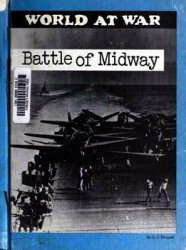Anweiler, Oskar, The Soviets: The Russian Workers’, Peasants’ and Soldiers’ Councils, 1905-1921, trans. by Ruth Hein (New York, 1974).
Avrich, Paul, Kronstadt, 1921 (Princeton, 1970). On the uprising of the Kronstadt sailors against the Soviet regime.
Borkenau, F., World Communism. A History of the Communist International (Ann Arbor, Mich., 1962). A participant’s history, first published in 1938 as The Communist International, strongest on the early years up to the mid-1920s.
Bukharin, N. and Preobrazhensky, E., The ABC of Communism, trans. by Eden and Cedar Paul (London, 1969). Written in 1919, this is the classic presentation of the ideology of War Communism. The 1969 edition has a very useful introduction by E. H. Carr.
Carr, E. H., A History of Soviet Russia (London, 1952-). A rich and detailed multi-volume history, covering foreign policy and the Comintern as well as domestic developments. The individual titles are The Bolshevik Revolution, 1917-1923, 3 vols. (London, 1952), The Interregnum, 1923-1924 (London, 1954), Socialism in One Country, 3 vols. (London, 1959) and Foundations of a Planned Economy, 1926-1929, 3 vols., vol. 1 co-authored by R. W. Davies (London, 1969-79).
Chamberlin, W. H., The Russian Revolution, 2 vols. (London, 1935). Still the best general work on the Revolution and Civil War, 1917-20.
-Russia’s Iron Age (London, 1935). A first-hand report on the upheavals
Accompanying the First Five-Year Plan.
Cohen, Stephen F., Bukharin and the Bolshevik Revolution. A Political Biography, 1888-1938 (New York, 1973). The standard work; a thoughtful reinterpretation of Bukharin’s role.
Daniels, Robert V., The Conscience of the Revolution. Communist Opposition in Soviet Russia (Cambridge, Mass., 1960). The best history of factional politics in the 1920s.
-Red October. The Bolshevik Revolution of 1917 (New York, 1967). Disposes vigorously of some myths surrounding the October Revolution and the roles of Lenin and Trotsky.
Davies, R. W., The Socialist Offensive. The Collectivisation of Soviet Agriculture, y929-795i?(Cambridge, Mass., 1980). The first of a projected five or six volumes on The Industrialisation of Soviet Russia: a work in the E. H. Carr tradition by the economic historian who co-authored one volume in Carr’s history.
Deutscher, Isaac, The Prophet Armed. Trotsky: 1879-1921 (London, 1954), and The Prophet Unarmed. Trotsky: 1921-1929 (London, 1959). The first two volumes of the classic biography: partisan but well-argued and very lively.
Ferro, Marc, The Russian Revolution of February 1917, trans. by J. L. Richards (London, 1972).
- October 1917: A Social History of the Russian Revolution, trans. by
Norman Stone (Boston, 1980).
Two important works of social history by a French historian.
Fischer, Louis, The Soviets in World Affairs. A History of Relations Between the Soviet Union and the Rest of the World, 1917-1929 (Princeton, 1951). Classic study by an American journalist who had access to Chicherin, Litvinov and others.
Fitzpatrick, Sheila, The Commissariat of Enlightenment. Soviet Organization of Education and the Arts under Lunacharsky, October 1917-1921 (London and New York, 1970).
- (ed.), Cultural Revolution in Russia, 1928-1931 (Bloomington, Ind.,
1978) .
-Education and Social Mobility in the Soviet Union, 1921-1934 (Cambridge,
1979) .
-‘Stalin and the Making of a New Elite, 1928-1939’, Slavic Review, vol.
38, no. 3 (1979).
Florinsky, Michael T., The End of the Russian Empire (New Haven, 1931). Last in a series by Russian emigre scholars on the social and economic history of Russia during the First World War.
Fiilop-Miller, Rene, The Mind and Face of Bolshevism. An Examination of Cultural Life in Soviet Russia (London, 1927). First-hand report on revolution in art and everyday life, with fine illustrations.
Gill, Graeme J., Peasants and Government in the Russian Revolution (London, 1979). On February-October 1917.
Haimson, Leopold, ‘The Problem of Social Stability in Urban Russia, 1905-917 Slavic Review, vol. 23, no. 4(1964) and vol. 24, no. 1 (1965). A very influential interpretative study.
-The Russian Marxists and the Origins of Bolshevism (Cambridge, Mass.,
1955).
Hasegawa, Tsuyoshu, The February Revolution: Petrograd, 1917 (Seattle, 1981).
Haupt, Georges and Marie, Jean-Jacques, Makers of the Russian Revolution (London, 1974). A useful collection of autobiographical sketches by Bolshevik leaders.
Hindus, Maurice, Red Bread (London, 1931). Report on collectivization in a Ukrainian village, based on first-hand observation.
Hough, Jerry F. and Fainsod, Merle, How the Soviet Union is Governed (Cambridge, Mass., 1979). A revision of Fainsod’s classic How Russia is Ruled (1st ed. 1953,2nd ed. 1963), with the historical material now separated from the analysis of the political system. Chs. 2-5 give the best available survey of political development from the October Revolution to Stalin’s death.
Katkov, George, Russia, 1917: The February Revolution (London, 1967). The product of detailed research; idiosyncratic in its fascination with conspiracy theories.
Keep, John, The Russian Revolution. A Study in Mass Mobilization (New York, 1976). Revolution in town and countryside, particularly useful on provinces.
Kerensky, A. F., The Catastrophe: Kerensky’s Own Story of the Russian Revolution (London, 1927). The first and most useful of several accounts of the October Revolution by the head of the government overthrown by it.
Koenker, Diane, Moscow Workers and the 1917 Revolution (Princeton, 1981). Social history, thoroughly researched.
Lane, David, The Roots of Russian Communism (Assen, The Netherlands,
1969) . Treats Russian Social-Democracy, 1898-1907.
Lewin, Moshe, Lenin’s Last Struggle (New York, 1968). A provocative essay on the late Lenin (1921-4).
-Russian Peasants and Soviet Power (London, 1968). On the first phase of
Collectivization (to June, 1930).
Medvedev, Roy A., Let History Judge. The Origins and Consequences of Stalinism (New York, 1971). An analysis by a Soviet Marxist dissident.
Melgunov, S. P., The Bolshevik Seizure of Power (Santa Barbara, 1972).
Meyer, Alfred G., Leninism (Cambridge, Mass., 1957). One of the standard Western works on the subject.
Moore, Barrington, Soviet Politics—The Dilemma of Power. The Role of Ideas in Social Change (Cambridge, Mass., 1950). An original and stimulating discussion of Leninist ideology and the reahties of power.
Narkiewicz, Olga, The Making of the Soviet State Apparatus (Manchester,
1970) . Rural administration during NEP.
Pethybridge, Roger, Witnesses to the Russian Revolution (London, 1964). A good selection of first-hand accounts of 1905 and the February (March) and October (November) revolutions of 1917.
Pipes, Richard, The Formation of the Soviet Union. Communism and Nationalism, 1917-1923 (Cambridge, Mass., 1954). A standard work, in which the author does not hide his dislike for the regime of which he writes.
— (td.) Revolutionary Russia: A Symposium (Cambridge, 1968). On 1917: contributors include George Kennan, Richard Pipes, Leonard Schapiro, E. H. Carr, Marc Ferro and Dietrich Geyer.
Rabinowitch, A., Prelude to Revolution. The Petrograd Bolsheviks and the July 1917 C/pming (Bloomington, Ind., 1968).
-The Bolsheviks Come to Power. The Revolution of 1917 in Petrograd (New
York, 1976). Detailed narrative histories, with an emphasis on popular support and diversity within the Bolshevik Party not found in many earlier Western works.
Radkey, Oliver H., The Agrarian Foes of Bolshevism. Promise and Default of the Russian Socialist Revolutionaries, February to October 1917 (New York, 1958).
- The Election to the Russian Constituent Assembly of 1917 (Cambridge,
Mass., 1950). A short but admirable analysis of the election returns and their significance.
-The Unknown Civil War in Soviet Russia. A Study of the Green Movement in
The Tambov Region, 1920-21 (Stanford, 1976). On peasant revolt against the Soviet regime.
Reed, John, Ten Days that Shook the World (London, 1966). A vivid eyewitness account of the October Revolution in Petrograd by an American leftist, first published in 1926.
Rigby, T. H., Lenin’s Government, Sovnarkom. /9/7-/922 (Cambridge, 1979). Unusual in focusing on Lenin as a governmental rather than a party leader.
Rosenberg, William G., Liberals in the Russian Revolution (Princeton, 1974). One of the best works on the politics of February-October 1917.
Schapiro, Leonard, The Origin of the Communist Autocracy. Political Opposition in the Soviet State: First Phase, 1917-1922 (Cambridge, Mass., 1955). A classic work of postwar Sovietology, by a distinguished British scholar.
Scott, John, Behind the Urals. An American Worker in Russia’s City of Steel (Boston, 1942). Magnitogorsk during the industrialization drive of the 1930s.
Service, Robert, The Bolshevik Party in Revolution. A Study in Organizational Change, 1917-1923 (London, 1979). Particularly valuable on the impact of the Civil War on the new regime.
Solzhenitsyn, Aleksandr L, The Gulag Archipelago 1918-1956. An Experiment in Literary Investigation, vols. 1-2, trans. by Thomas P. Whitney (New York, 1973). Passionate, unconventional both as literature and history, but still a major historical work on the Soviet secret police and the labour camps.
Sukhanov, N. N., The Russian Revolution 1917, 2 vols., edited and translated by Joel Carmichael (New York, 1962). By general consensus, the best of the memoirs - wry, shrewd and knowledgeable.
Suny, Ronald G., The Baku Commune, 1917-1918. Class and Nationality in the Russian Revolution (Princeton, 1972). An important study, particularly valuable for testing generalizations about the revolution based mainly on Petrograd and Moscow.
Timasheff, Nicholas S., The Great Retreat. The Growth and Decline of Communism in Russia (New York, 1946). A stimulating if slapdash work by a Russian emigre sociologist, focusing on the changing social policies of the 1930s.
Trotsky, L., The Revolution Betrayed (London, 1937). Trotsky’s major critique of Stalin, his old political opponent. Raises themes of bureaucratization and embourgeoisement later developed by Djilas, Burnham and others.
- The Russian Revolution, abridged from Trotsky’s The History of the
Russian Revolution by F. W. Dupee, trans. by Max Eastman (New York, 1959). A memoir brilliantly presented as history, source of many idees regues about the Revolution.
Tucker, Robert C., Stalin as Revolutionary 1879-1929 (New York, 1973). Subtitled ‘A Study in History and Personality’, this biography has been criticized for its ‘psycho-historical’ approach, but offers a convincing and in many ways unfamiliar picture of Stalin based on solid scholarship and broad knowledge of Soviet history, politics and ideology. A second volume is in preparation.
-(ed.), Stalinism. Essays in Historical Interpretation (New York, 1977). The
Major interpretative work on the Stalin period of recent years, with important essays by Robert Tucker and Stephen Cohen. Contributors include Leszek Kolakowski, Moshe Lewin, T. H. Rigby and H. Gordon Skilling.
Ulam, Adam B., The Bolsheviks. The Intellectual and Political History of the Triumph of Communism in Russia (New York, 1965). Essentially a political biography of Lenin, ending with his death in 1924. Lively, intelligent and easy to read.
-Stalin. The Man and his Era (New York, 1973). The same genre as The
Bolsheviks. Gives an excellent sense of Stalin as a political operator.
Valentinov, Nikolay, Encounters with Lenin, trans. by Paul Rosta and Brian Pearce (London, 1965). The most vivid personal memoir of Lenin, based on meetings in 1904 when the author was first drawn to the Bolsheviks and then broke with them.
Von Laue, T. H., Wlty Lenin? Why Stalin? A Reappraisal of the Russian Revolution, 1900-1930 (Philadelphia, 1964). A stimulating interpretative essay, seeking to explain the revolution in a context of world and European history and within a modernization framework.
Warth, Robert D., The Allies and the Russian Revolution (Durham, 1954).
Wildman, Allan K., The End of the Russian Imperial Army (Princeton, 1980). A detailed study with many new insights, dealing with the first months of 1917. A second volume taking the story up to October is in preparation.
Wilson, Edmund, To the Finland Station: A Study in the Writing and Acting of History (New York, 1959). An elegant essay on Marxism, Lenin and the evolution of Lenin’s thought up to his return to Russia in April 1917, by a distinguished American man of letters.
Wolfe, Bertram D., Three Who Made a Revolution. A Biographical History (revised ed.. New York, 1964). A triple biography of Lenin, Stalin and Trotsky before 1917. A good work of popular history.
Zeman, Z. A. B. (ed.), Germany and the Revolution in Russia, 1915-1918. Documents from the Archives of the German Foreign Ministry (London, 1958). A basic source for those interested in the ‘German gold’ explanation of the Bolsheviks’ success.




 World History
World History









